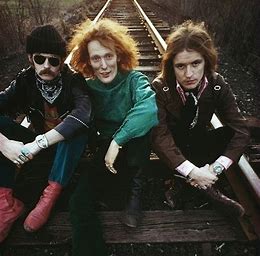The concert was a success, but the audience had died.
Trying to recapture any piece of your past is a futile activity.
We can learn from our pasts, but it cannot be recreated. You will be disappointed if you try to recapture any part of your memories.
That lesson was learned from attending a recent West Palm Beach, Florida, rock concert. The onstage group was the Cream, or more correctly, the son and nephew of the original group known for its extended, energetic, power solo improvisations. The original three-member group only lasted from 1966 to 1968 before life intervened, and they dissolved the band. During this short time, the group’s third album, Wheels of Fire (1968), became the world’s first platinum-selling double album.
Now, almost 50 years later, two sons of the original players (Kofi Baker, Ginger Baker’s son), Malcolm Bruce, Jack Bruce’s son), and Will Johns (Eric Clapton’s nephew) created the ultimate, near-genetically exact tribute band. By taking lessons from their fathers and some developed musical talent, this band gives a very close re-creation of the original sound from 50 years ago.
The musical nostalgia worked, but the big disappointment was from my fellow Baby Boomer concert attendees. As much as I looked forward to this event, I was even more excited to see who would attend it. I expected the crowd to show the expected signs of aging, but more importantly, the verve and raw energy that I saw in the audience during a Cream concert in Chicago in 1968 were all gone.
Too many Baby Boomers at this event, held in a grand carpeted concert hall, suffered from social media distractions and the isolation of retirement. The crowd was almost 100% white, and judging from the cars in the lot, they were middle—to upper-class retirees from the surrounding towns. But a big piece of this gathering of like-minded fans was missing.
Walking Through Life

What was different from the rock concert experience of 40 years ago was the feeling that we were attending something new. Maybe it was the fresh sense of being close to your 20s. But there was much more. The era of the 1960s is hard to describe. Things were changing fast.
The Vietnam War had energized the nation; a corrupt president was forced out by a Congress that essentially had a sense of duty, drugs gave many people new experiences, and students on campuses organized around a purpose or shared goal. There was a sense among some young people that real progress could be made towards a future social goal. Things could be better without the significant advances in consumer technology today. There was no social media.
If you wanted a date, you went to a party, bar, restaurant, or the campus. You had more control. If you didn’t act, you could blame yourself. Accountability worked. There was no such thing as “incel” groups. These guys were just nerds without any particular self-pitying identity they have today. At a rock concert in the ’60s or ’70s, concertgoers passed joints down the row to strangers until it disappeared 10 or 20 people down the row. Many people went with friends to the concert and made more friends there.
Flash forward 40 years, and this concert audience lacked any social awareness. They were socially stoic. I saw couples come in, sit, and not talk to anyone. Many pulled out their phones at intermission rather than talk to people around them. How many of these Baby Boomers had seen the original group in concert? Where were they when they heard the band? Were they in college? How much did they pay for a ticket? (I bet it was under $10 in 1970 compared to $80 today.) Why were they at the concert tonight? What made them want to hear a tribute band? In short, what were they looking for? Or was it just another night away from the condo or the house in West Palm Beach, Florida?
I never found out. We went to the concert, heard it, and left without talking to any of our fellow Baby Boomers and concert attendees. The band was energetic and talented but not original. They told some stories about the ill effects of too many drugs. One said he was given a joint to smoke by his father at age six. Some had a few stories about how songs were written, but the Cream was never known as songwriters; they were great soloists at a time when they could shine and cement their reputations. That brought the crowds 40 years later, but while it was the same music, it was not the same crowd.
A Greek philosopher said: “you cannot cross the same river twice,” and he was right. This river had flowed past decades ago. The people in the beautiful concert hall once were in the river; now they were well downstream. And all that happened without selfies to record the change.











